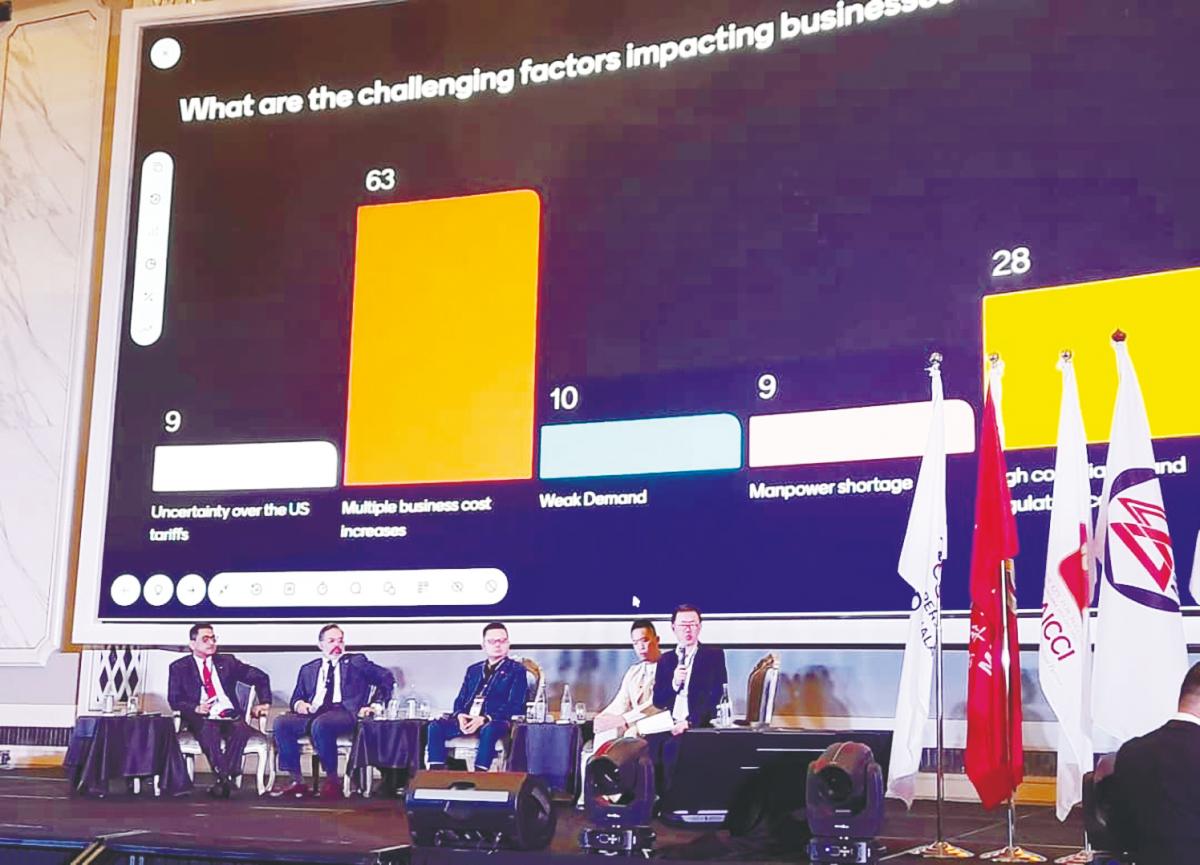KUALA LUMPUR: AmBank Group expects Bank Negara Malaysia (BNM) to maintain the Overnight Policy Rate (OPR) at 2.75% for the remainder of the year, citing current economic conditions as supportive of the existing rate.
AmBank Group chief eonomist Firdaos Rosli said the current OPR level is appropriate and no adjustments are anticipated in the near term.
“We believe the current OPR of 2.75% is adequate. Given the prevailing economic landscape, we do not foresee any changes in the coming months. It is likely to remain unchanged through the end of 2025,” he told reporters at the National Economic Forum 2025 today.
However, Firdaos cautioned that the outlook for 2026 may differ, depending on external developments.
“There is still considerable uncertainty surrounding economic conditions in the United States and other key markets. The situation could evolve in ways that impact our projections,” he noted.
On Malaysia’s economic performance, Firdaos said that second-quarter gross domestic product (GDP) growth may moderate slightly to the lower end of the 4% range, following a decline in the Industrial Production Index (IPI).
Malaysia’s IPI grew by just 0.3% year-on-year in May, a notable slowdown from the 2.7% expansion recorded in April.
“Given the slowdown in industrial output, GDP growth for Q2 could come in closer to 4%, although still within the targeted range. External trade has remained relatively resilient, which supports overall performance,” he said.
He attributed this resilience to front-loading activities, particularly among exporters shipping goods to the United States and other international markets ahead of potential trade disruptions.
Firdaos pointed out that the strong 4.4% GDP growth recorded in the first quarter was likely boosted by early festive spending, some of which carried into the second quarter.
“Consumer spending has remained stable, especially with the Hari Raya period falling within the quarter,” he said.
AmBank’s full-year GDP forecast stands at 3.8%, slightly below the World Bank’s projection of 3.9%.
“We are anticipating a general economic slowdown, primarily driven by external headwinds. Consumer and investment confidence remain somewhat subdued, and we expect this trend to continue in the near term,” Firdaos said.
While not attributing the slowdown to any specific policy or shock, he emphasised the broader sentiment-driven nature of the deceleration.
“It’s a general, broad-based slowdown – not due to any one specific factor such as tariffs – but rather an accumulation of uncertainty in the external environment,” he said.
Tariffs, however, remain a key area of concern.
“In my view, tariffs continue to pose a significant uncertainty in the global trade landscape. The United States is taking a bilateral approach, and it’s still unclear how other Asean countries will be treated under this policy direction,” he said.
Firdaos noted that countries such as Vietnam and Indonesia have already received official communication from the US, while Singapore has not. Malaysia, he said, has also received such correspondence, with negotiations ongoing and expected to continue until August.
“There is a possibility that the negotiation deadline could be extended, which keeps sentiment cautious among businesses and investors,” he added.
In light of this uncertainty, Firdaos said, companies may accelerate trade activities to hedge against potential tariff hikes. “This cautious sentiment is a key reason behind the expected slowdown. Businesses and consumers are taking a more conservative stance amid unresolved global issues.”









